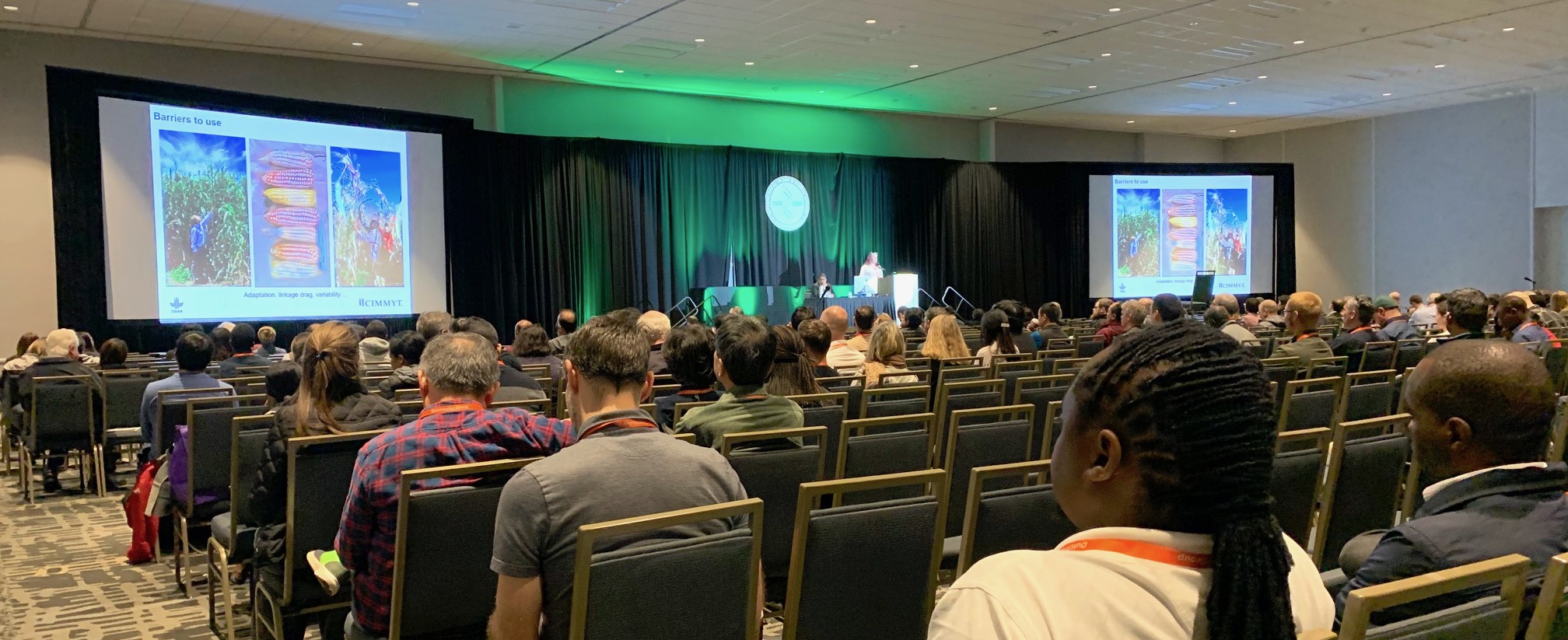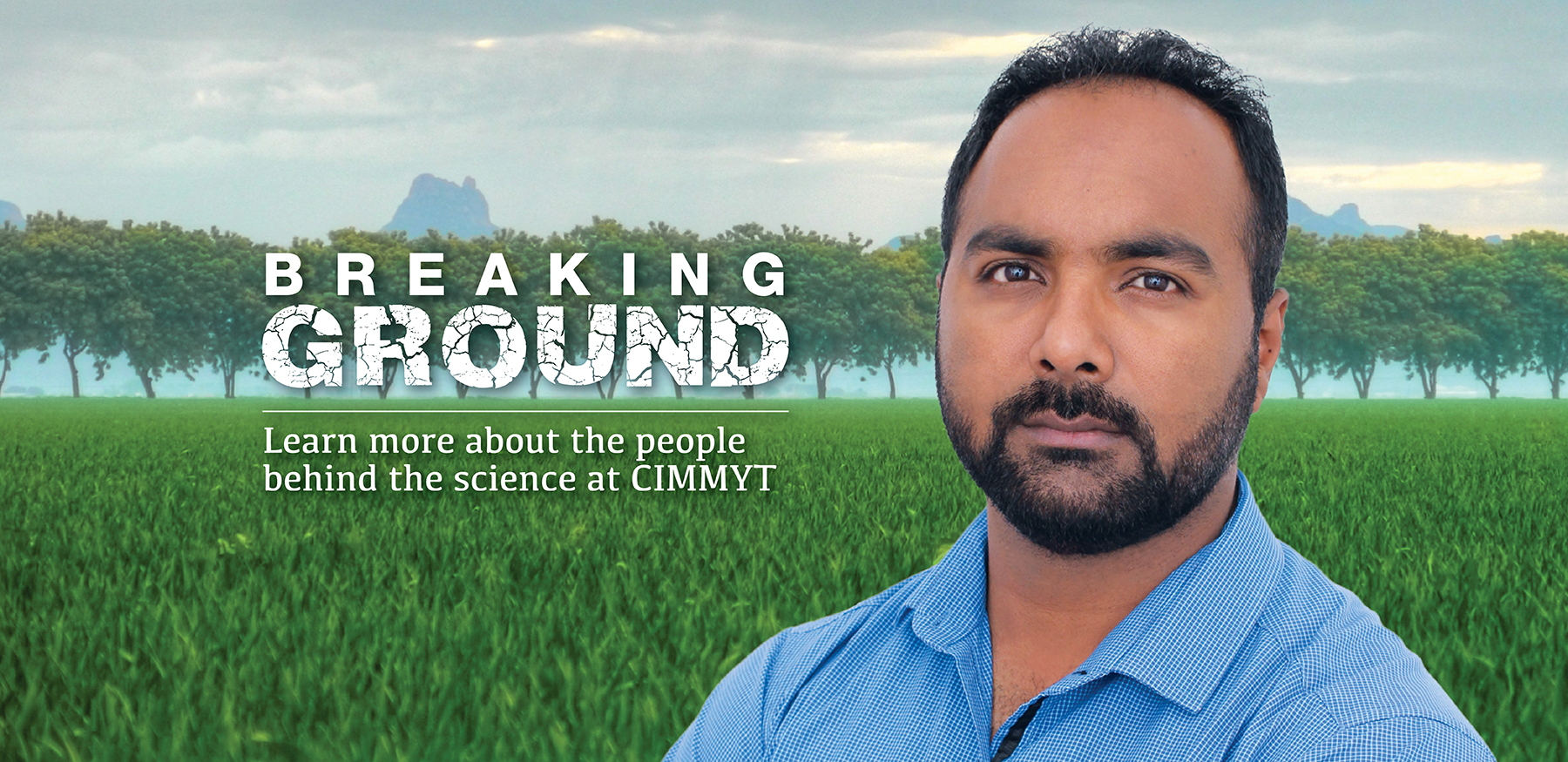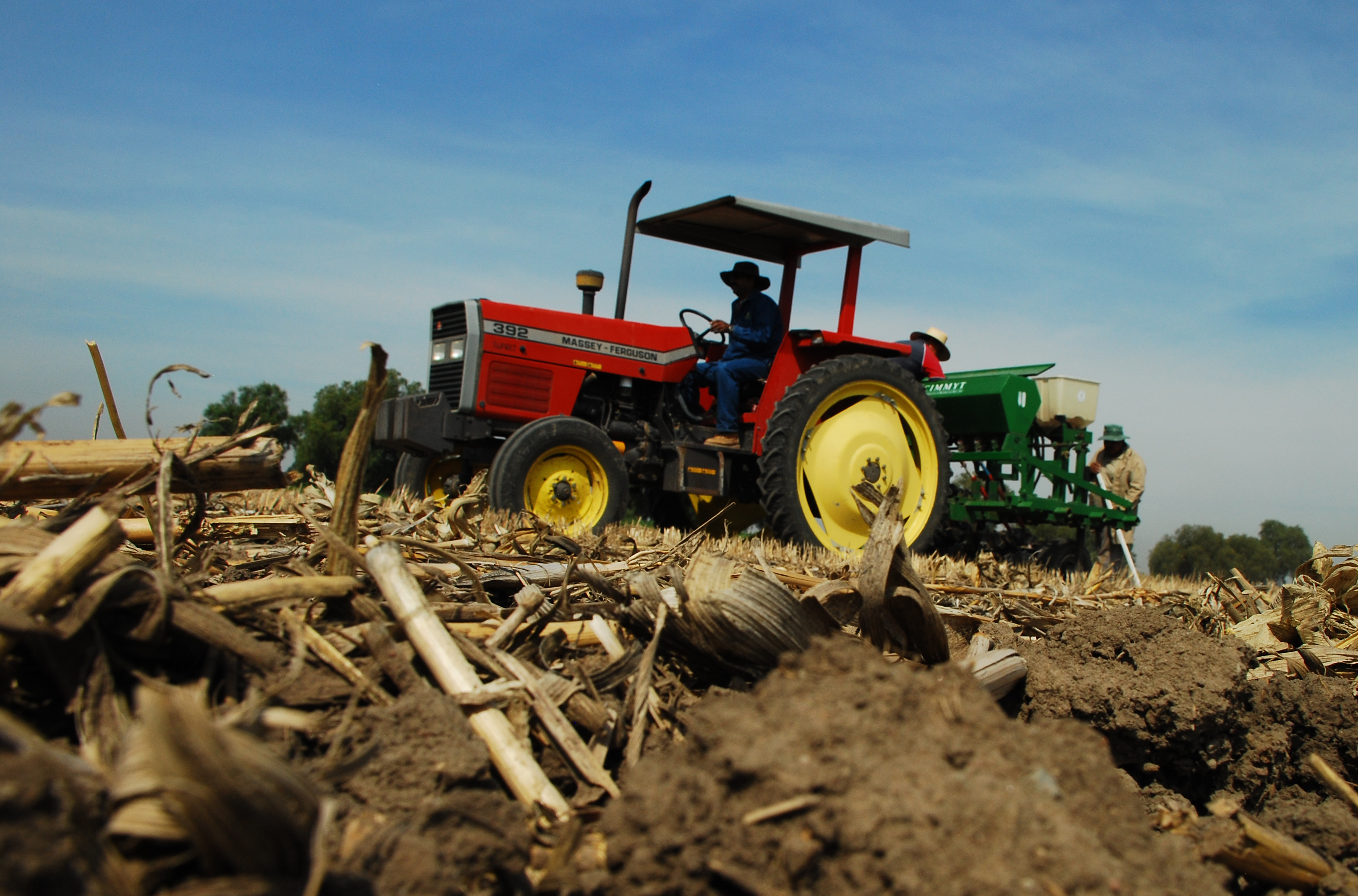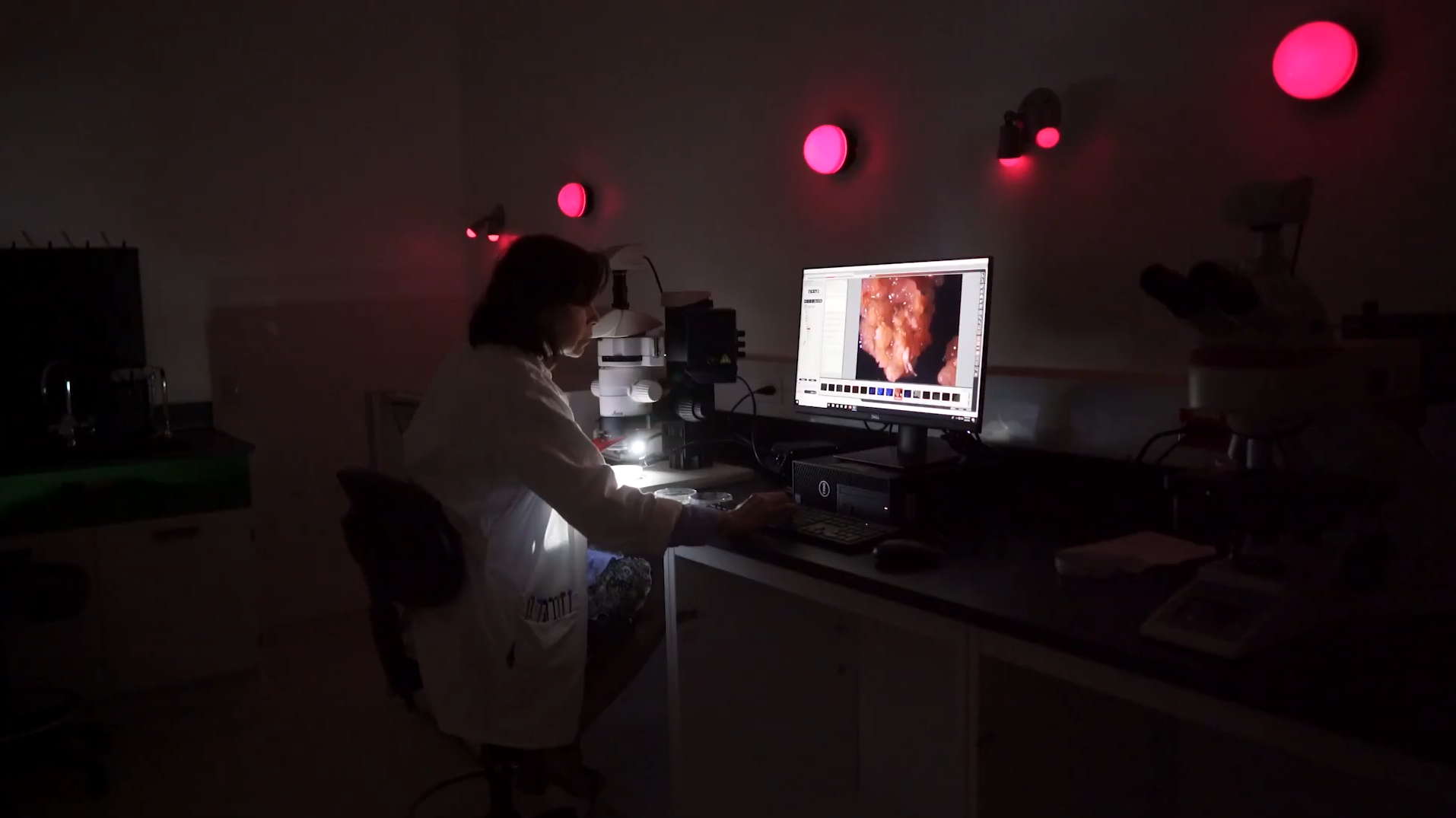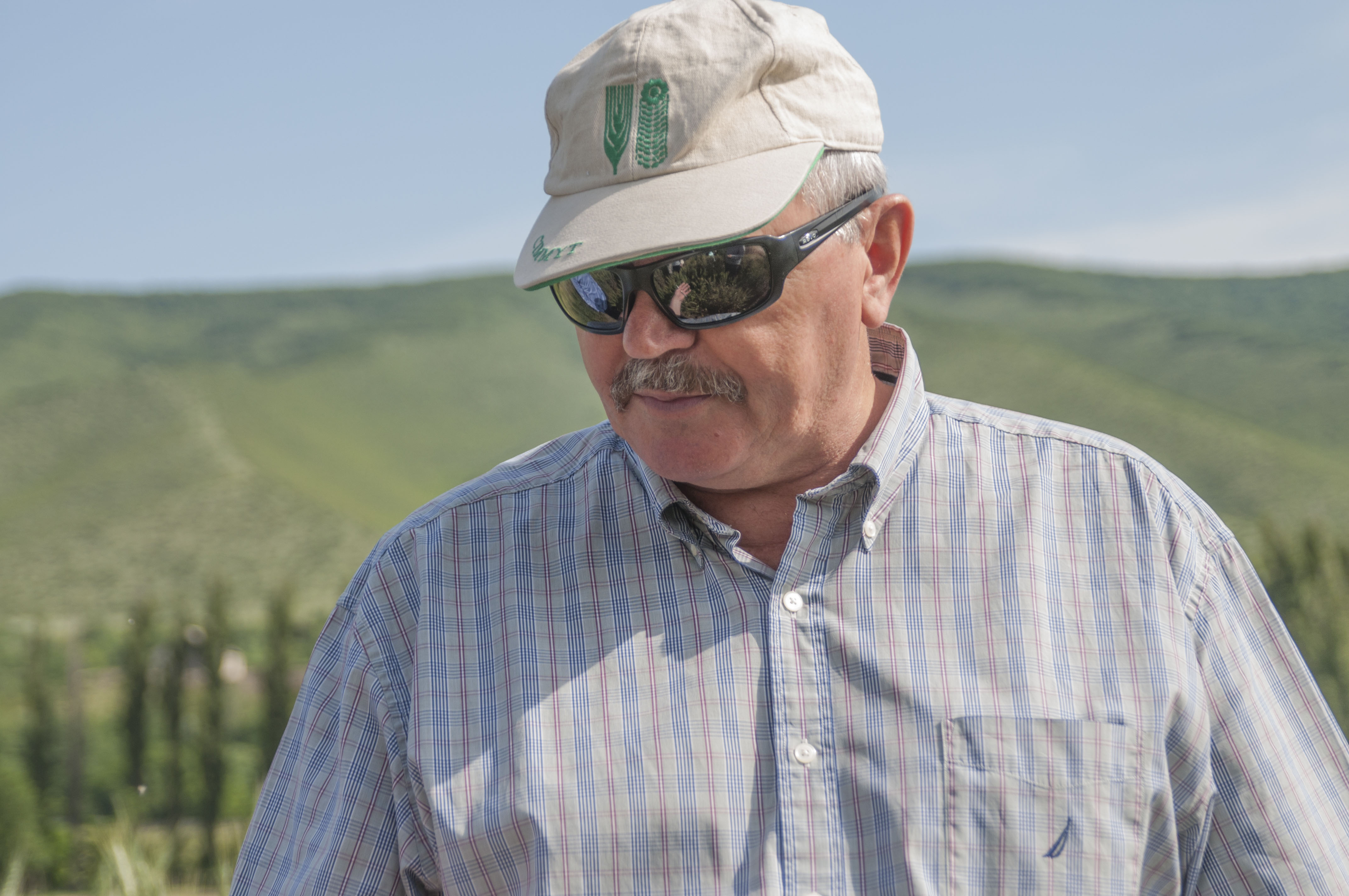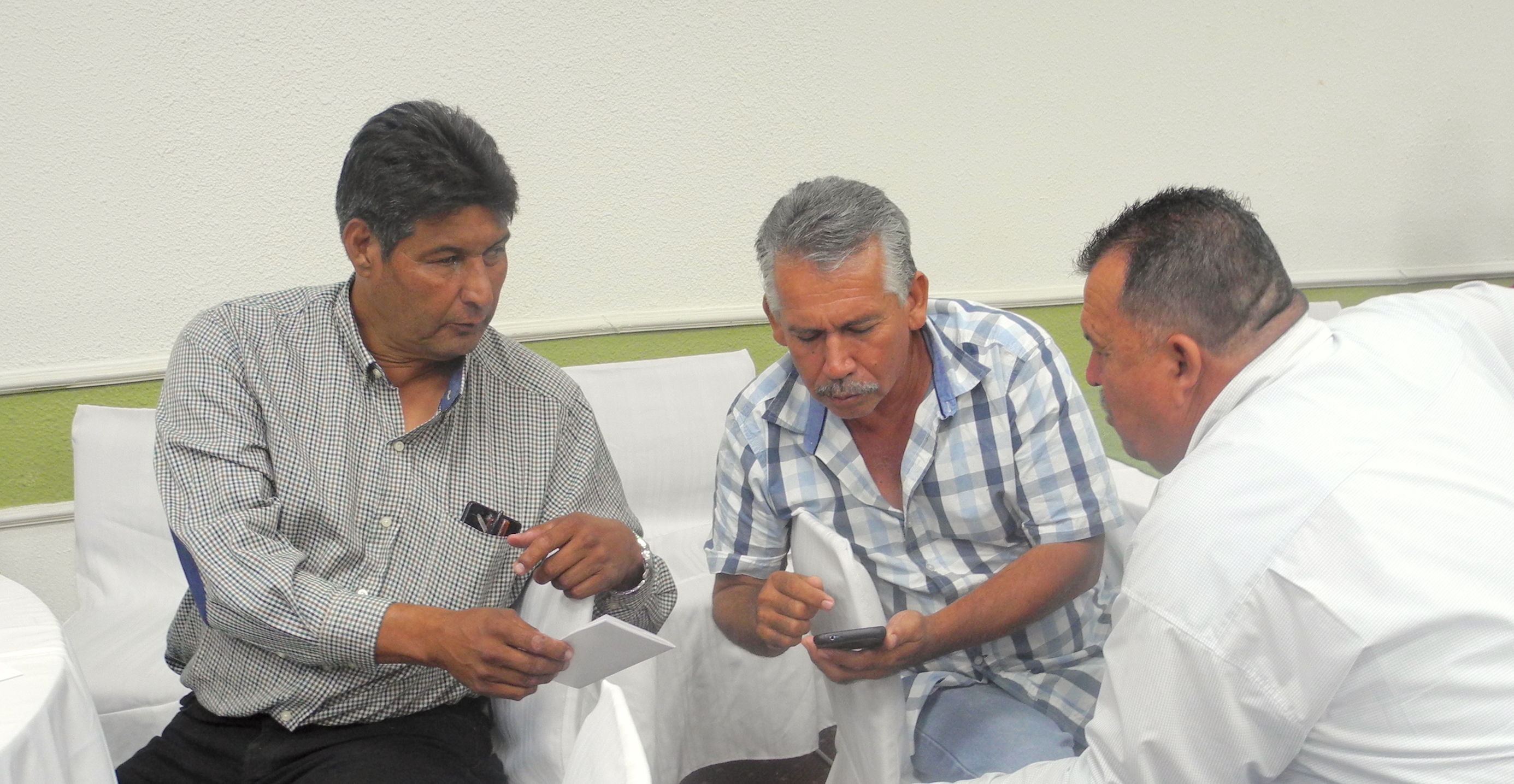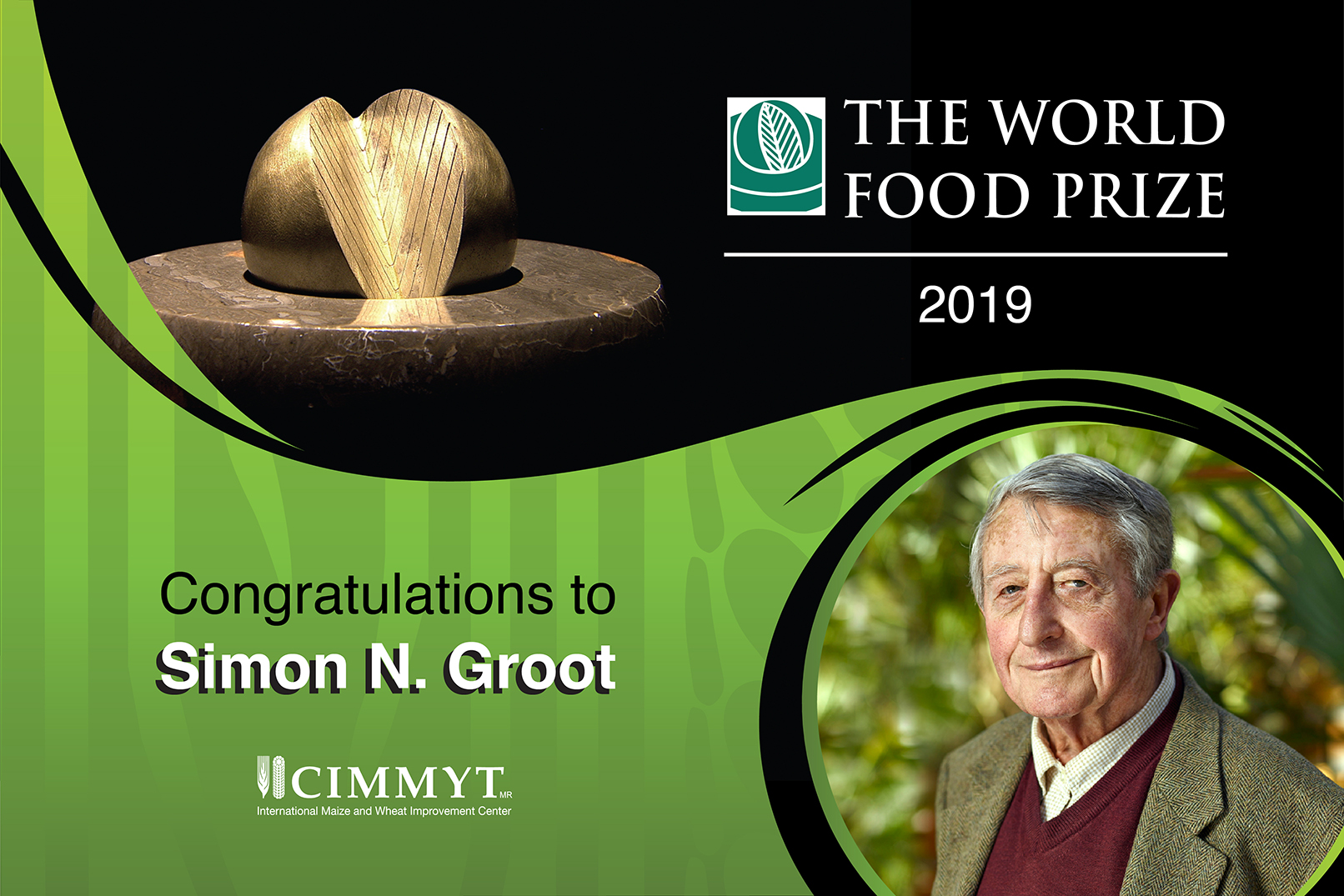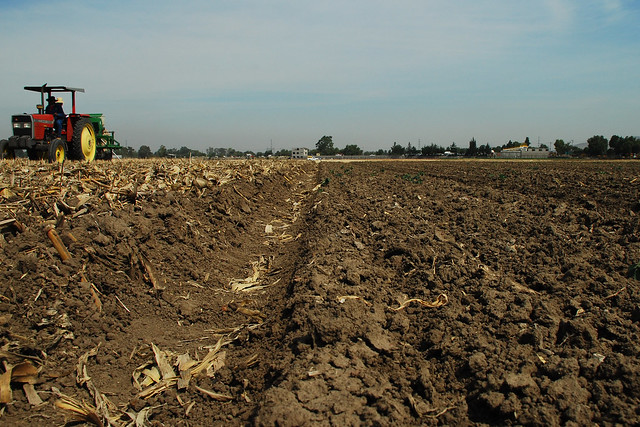New publications: Optimum nitrogen fertilizer rates for rice and wheat in the Indo-Gangetic Plains of India
 Climate adaptation and mitigation
Climate adaptation and mitigation
The results of the study will allow farmers to get the best crop yields while saving money and reducing harmful nitrous oxide emissions.
CIMMYT scientists join fellow experts in San Diego for world’s largest plant and animal genomics conference
 Innovations
Innovations
Researchers share their work translating the latest molecular research into breeding solutions for better maize and wheat varieties.
Breaking Ground: Mandeep Randhawa fights wheat diseases using genetic resistance tools
 Capacity development
Capacity development
CIMMYT wheat scientist explores new sources of rust resistance to create new rust-resistant wheat varieties.
New publications: Durum wheat selection under zero tillage increases early vigor and is neutral to yield
 Innovations
Innovations
Researchers demonstrate that CIMMYT’s durum wheat lines can be grown, bred, and selected under zero tillage or conventional tillage conditions without negatively affecting yield.
Harnessing research for climate-resilient wheat
 Capacity development
Capacity development
A new video highlights the work of the Heat and Drought Wheat Improvement Consortium (HeDWIC) to create new climate-resilient wheat varieties.
The end of an era: Alexey Morgunov retires after a 28-year career
 Capacity development
Capacity development
CIMMYT scientist contributed to the development and adoption of more than 70 wheat varieties in Central and West Asia.
New mobile technology to help farmers improve yields and stabilize incomes
 Innovations
Innovations
The COMPASS smartphone phone app uses data from farmers and from satellites to provide precise crop management advice.
2019 World Food Prize recognizes the impact of bringing improved seeds to Africa, Asia and Latin America
 Innovations
Innovations
The work of laureate Simon N. Groot has helped smallholder farmers to enhance vegetable production and has improved the diets of millions.
Scientists propose a low-cost, reliable system to measure soil organic carbon
 Climate adaptation and mitigation
Climate adaptation and mitigation
Using existing sources of information, quantifying soil organic carbon would be a first step to increasing it, a crucial way to support climate change mitigation and agricultural resilience.

